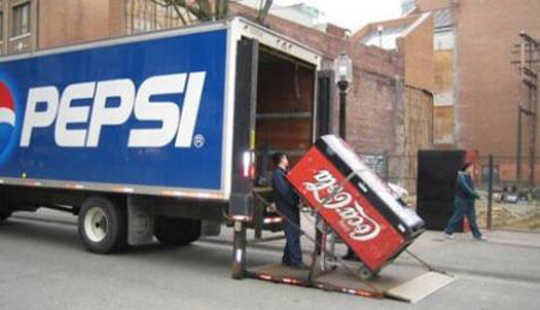
The two largest soda makers in the US use their sponsorships of health organizations to bolster their image, which helps them lobby against public health bills, a new study suggests.
Between 2011 and 2015 Coca-Cola Company and PepsiCo sponsored at least 96 national health organizations. During the same period, they lobbied against at least 28 public health bills intended to reduce soda consumption or improve nutrition, according to the study in the American Journal of Preventive Medicine.
“Organizations may become unwitting partners in a corporate marketing strategy that undermines public health.”
“The soda companies can neutralize potential legislative opposition by invoking reciprocity and financial dependence from national health organizations,” says Daniel Aaron, a medical student at Boston University School of Medicine and the study’s lead author. “Rather than supporting public health, organizations may become unwitting partners in a corporate marketing strategy that undermines public health.”
Aaron and Michael Siegel, an School of Public Health professor of community health sciences, researched sponsorships and lobbying efforts by the two soda companies to come up with a list of 96 national health organizations that accepted money from the companies. Twelve organizations accepted money from both companies; one accepted money from just PepsiCo; and 83 accepted money from only Coca-Cola. The authors note that the count could be skewed because Coca-Cola publishes a list of its recipient organizations, while PepsiCo doesn’t.
The sponsorship totals include two diabetes organizations—the American Diabetes Association and the Juvenile Diabetes Research Foundation—a finding that the authors call “surprising, given the established link between diabetes and soda consumption.”
The study also identifies 28 bills or proposed regulations, including soda taxes and restrictions on advertising, that were opposed by the soda companies or their lobbying groups. Siegel and Aaron say these efforts demonstrate the companies’ “primary interest of improving profit, at the expense of public health.”
Millions spent on lobbying
Between 2011 and 2014, the Coca-Cola Company spent more than $6 million annually, on average, on lobbying, while PepsiCo spent more than $3 million a year, and the American Beverage Association spent more than $1 million a year, according to the study.
Aaron and Siegel compare the ties between soda companies and health groups to corporate sponsorships of tobacco and alcohol companies.
“Previous studies of alcohol company sponsorship and tobacco sponsorship suggest that corporate philanthropy is a marketing tool that can be used to silence health organizations that might otherwise lobby and support public health measures against these industries,” Siegel says.
For example, Save the Children, a group that supported soda taxes, dropped the effort in 2010 after receiving more than $5 million from the Coca-Cola Company and PepsiCo in 2009, the study says.
The study recommends that health organizations reject sponsorship offers from soda companies and find alternative sources of funding. It notes that the Academy of Nutrition and Dietetics, the American Academy of Pediatrics, and other organizations did not renew contracts with Coca-Cola at the end of 2015.
Source: Boston University
Related Books:
at InnerSelf Market and Amazon





























